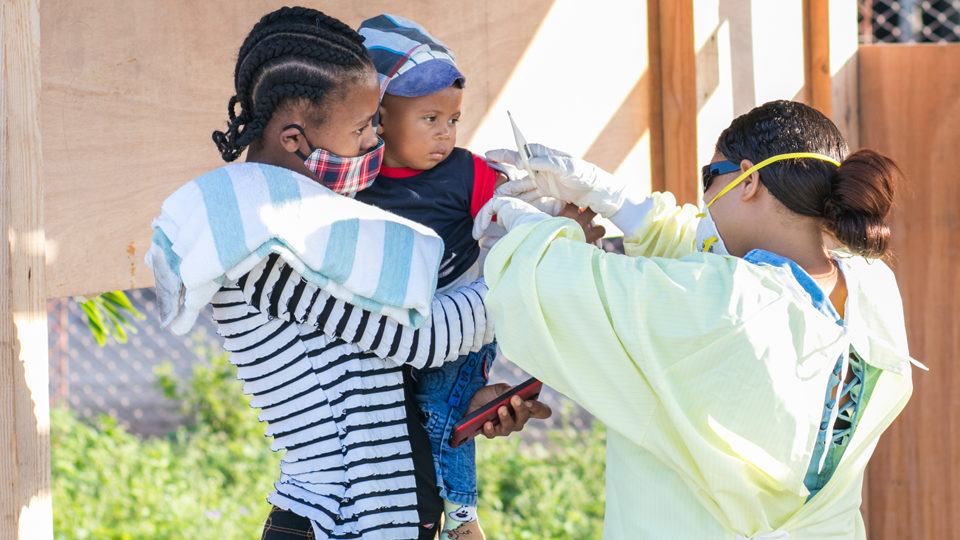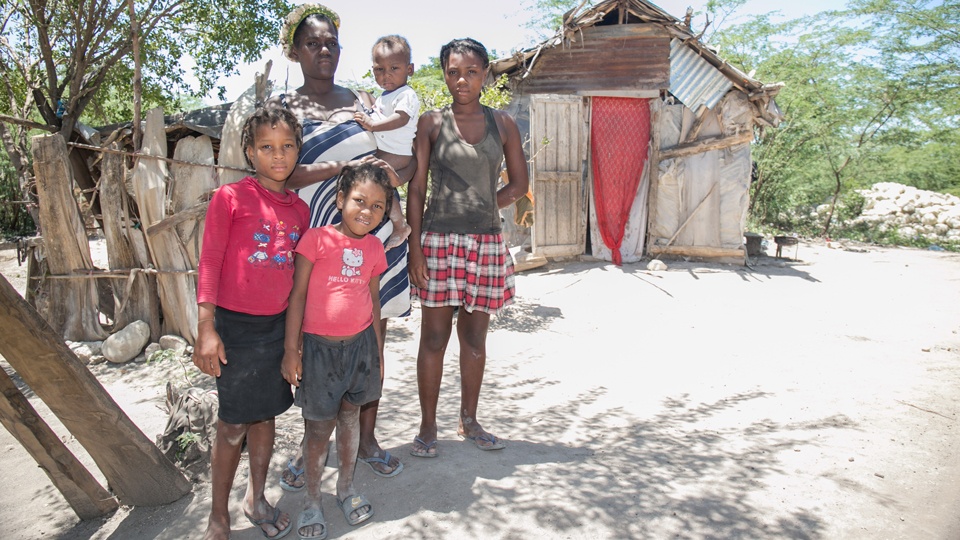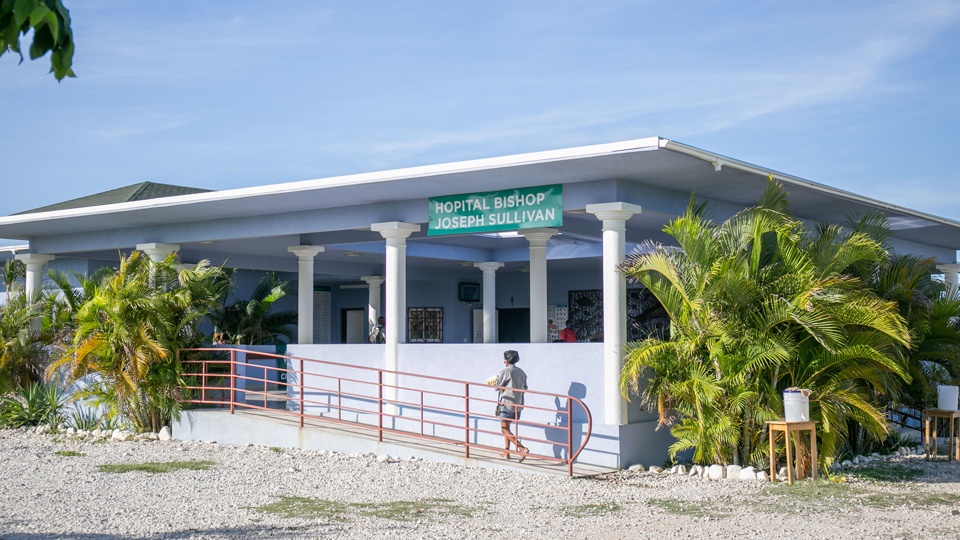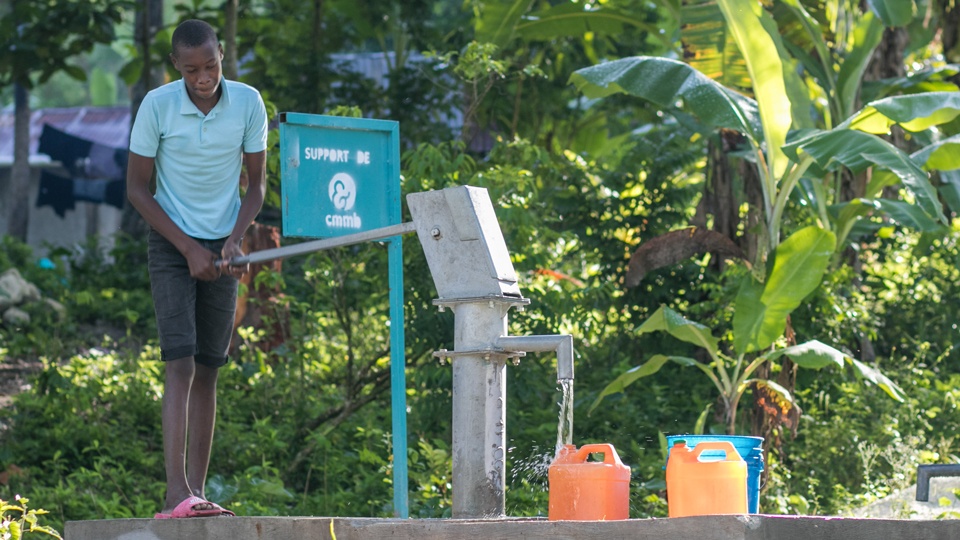COVID-19 Response in Haiti

Haiti is a leader among Caribbean countries in the number of confirmed COVID-19 cases. As part of our COVID-19 emergency response efforts, CMMB has trained over 985 health facility staff and over 385 community health workers from our Bishop Joseph Sullivan Hospital for Health in southeast Haiti that serves a community of more than 138,000 people.
Community health workers are visiting markets and villages to distribute soap and to raise awareness about preventing the spread of the virus and recognizing its symptoms. In addition, CMMB has airlifted medicines, medical equipment and PPE supplies to protect the frontline health workers serving their patients.
Support Our Work in Haiti
Poor Families in Haiti at Risk
In Haiti, the same factors that contribute to deaths from earthquakes and hurricanes make the country susceptible to the pandemic: poverty, food insecurity, lack of clean water and sanitation, and scare health care resources. In a country where approximately half of the population survives on less than $2 per day, the pandemic especially hurts poor families that live from hand to mouth.
For many Haitians, practicing good hygiene and social distancing— basic precautions to help prevent the virus— is nearly impossible. Many families live to day-to-day and depend on open-air markets for their basic needs. However, the virus can spread quickly in the packed crowds of the markets. Families risk potentially exposing themselves to the virus or going hungry.
COVID-19 Response Center: Bishop Joseph Sullivan Center for Health
CMMB’s Bishop Joseph Sullivan Center for Health is at the forefront of our COVID-19 response in Haiti. It is the only hospital in the isolated and improvised community of Cotes-de-Fer in southeast Haiti. The 50-bed hospital serves a community of more than 138,000 people. “Our fear is everyone’s fear,” said Dr. Laguerre Jean Daniel, the hospital director. He expressed fear about not having enough ventilators if COVID-19 cases surged in the rural.
“Our fear is everyone’s fear.”
The hospital staff built a triage center to screen patients for symptoms of COVID-19. A facility built in response to last year’s cholera epidemic is now being used for COVID-19 patients that require hospitalization. In addition, all arriving patients are required to wash their hands at handwashing station that are strategically placed around the hospital grounds.
Improving Access to Clean Water and Sanitation
Haiti suffers from the worst water and sanitation infrastructure in the Western Hemisphere. To increase access to clean water and sanitation, CMMB is installing simple handwashing stations, like tippy taps, and constructing boreholes, water storage tanks, and rainwater catchment systems.
Combating COVID-19 Stigma
Many Haitians fear being tested or treated because of misinformation about the virus. COVID-19 denial is widespread. Skeptics seek care too late. Others, fearful, stay away because of stigma, impeding prevention. “Because we are an underdeveloped country, we need to educate the population,” said Dr. Laguerre Jean Daniel, the hospital director at Bishop Joseph Sullivan Center for Health.
“We need to educate the population.”
With a long history of combating HIV in Haiti, CMMB is working to fight similar stigmas around COVID-19. The trained community health workers are making home visits and visiting markets to raise awareness about preventing the spread of the virus and recognizing its symptoms.


